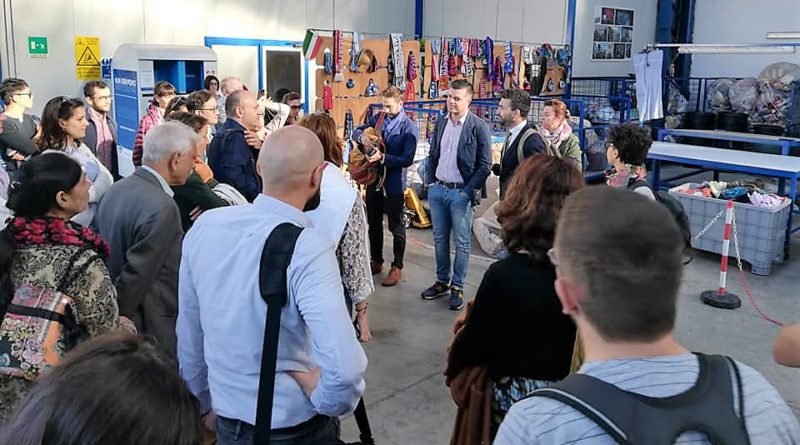3 days of workshops and visits in Naples for 50 students from all around the world #SCIS2018
By Francesca Zaganelli
The 2018 edition of the Social Cooperatives International School (#SCIS2018) closed its doors on Sunday 28 October in Naples (Italy), after three full days of sessions, workshops, study visits but also fun and relaxing moments.
The 49 students came from an impressive variety of countries, with participants from the Czech Republic, Malta, Nigeria, Sri Lanka, India, Austria, Bulgaria, Belgium, Korea, Hungary, Spain and Italy!
Organized by CICOPA’s member Confcooperative Federsolidarieta, the focus was set this year on:
- Social Cooperatives and Technological innovation
- Urban regeneration and local communities: social cooperatives promoting economic, environmental and social sustainability
- Social impact evaluation and social impact finance
The students also had the opportunity to visit the social cooperative farm “Fuori di Zucca”, the social cooperative “Parteneapolis” promoting historic and cultural heritage in the historic center of Naples and the social cooperative “Ambiente Solidale”.
Recycling: an opportunity for the community
Ambiente Solidale is a Type B social cooperative, which thanks to the development of entrepreneurial activities in the environmental and social field favors the employment of people habitually excluded from the market. It operates in the collection and transport of hazardous and non-hazardous wastes, such as textile materials (used clothes), hi-tech material (computers, monitors), printing materials (ink-jet cartridges, lasers, toners, etc.) and industrial waste.
Since 2016, Ambiente Solidale – through the placing of containers for the collection and processing of used clothes in authorized center – brings numerous advantages to the Municipality of Naples, both from increasing the quantity of recycled product and, in terms of image, from the social inclusion activities:
- 23 workers are currently employed in the cooperative, of which eight are disadvantaged people (former drug addicts, ex-convicts, etc.).
- A recycled dress is reusable both as garment and as a fiber. For every kilo of clothes recovered, 6 thousand liters of water are saved and the use of pesticides, fertilizers and carbon dioxide is reduced.
In addition, for every kilo of used cloths collected, Ambiente Solidale allocates three cents to a social solidarity fund for the realization of projects in the field of social policies in the territory.

